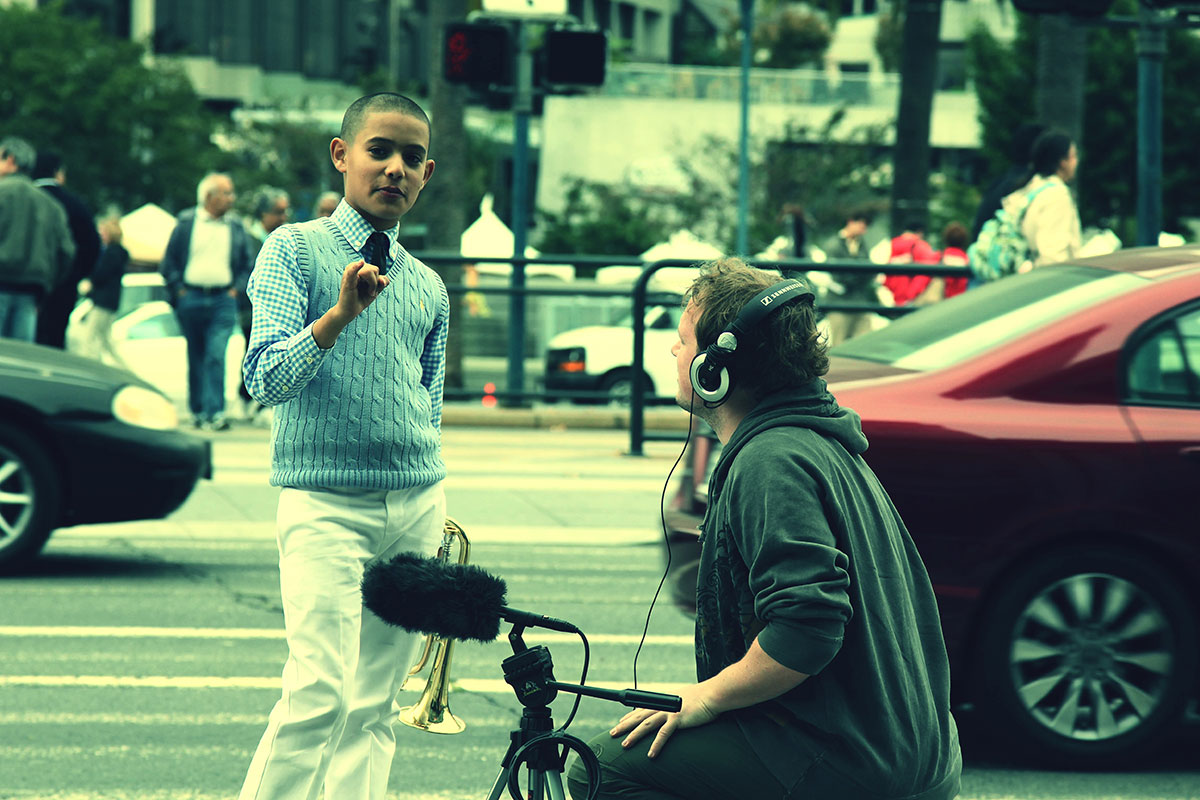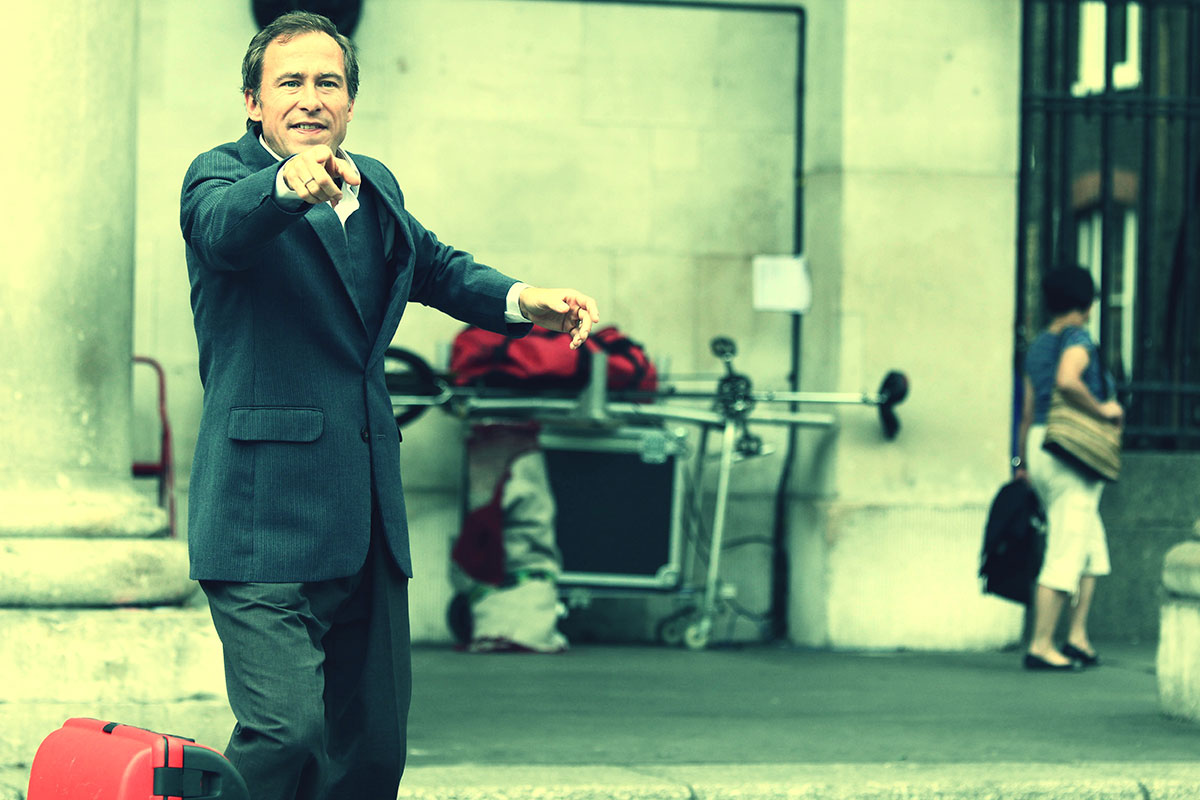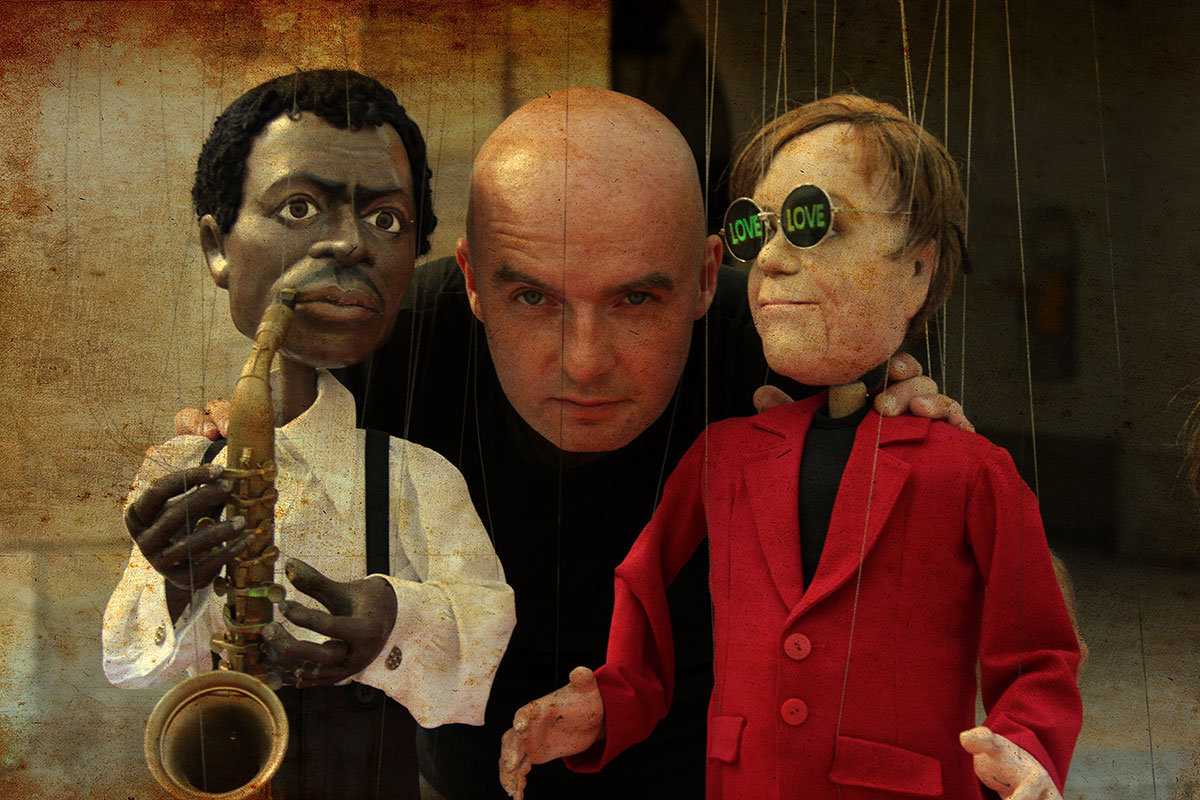I get it; Poor Dave on the Corner, singing for his supper and just trying to get by; busking his heart out, misunderstood, dreaming big… it could be an engaging story. But, portraying this charismatic underdog as an unsung hero is just as excruciatingly clichéd as this paragraph.
We’re often approached by media types, from film students to the world’s most reputable publications, so I’ve written a short guide on how to talk about busking. In particular, I’ve focused on what NOT to say or do, from the point of view of someone who has made all of the mistakes below (and is very sorry about it).

POINTING CAMERAS IN THE STREET
You’re out there, it’s exciting, you want to immediately film the action. But remember; these people are working, and should be treated as such.
Wait.
Don’t just get your cameras out and start shooting. It’ll be a distraction for the artist, and it’s just rude. You wouldn’t do this at the theatre, so don’t do it in the street – not before asking. Wait for them to finish their song/act, then approach, introduce yourself and ask if you can start filming.
Introduce Yourself.
Learn an “elevator pitch”. Don’t start blathering about misconceptions surrounding the theory of success and its socioeconomic implications: get straight to the point. “I’m a student filmmaker, and would love to use you in a film for my thesis. Can I film your show? I will come and talk to you afterwards.”
Make Eye Contact.
If you really don’t have time to stop, or you fear missing the action, use your eyes, eyebrows, head and equipment to convey you’re requesting permission to point a camera at them – but don’t want to interrupt, please excuse me very much. If they ignore you, take that as a “no”.
Don’t Leave.
You’re done recording, now it’s time to leave. Except you’re about to break away in the middle of their act. You don’t have to leave a tip, but consider it one of those social obligations, like letting people off the subway first, or not stealing your neighbour’s bin. At the very least, don’t just take off mid-song. It’s rude.

STUPID QUESTIONS (asked by everybody)
You’ve seen the show, you’ve tipped, you’ve introduced your concept and they’ve finally sat down with you. Now is when you walk the minefield of the busker interview. Try really, really hard not to make the following gaffs. I made them ALL when starting out, so you don’t have to.
-“You’re amazing! You should be a professional!”
This is not, as you may have thought, a compliment. Without stating the obvious too much, you’re interviewing a talented artist with a large, appreciative audience and a steady income. What about that isn’t “professional”?
-“Apologies. Okay, so why didn’t you try the traditional industry route?”
Actually, the traditional way of performing for people has always been in the street. The arts establishment (record labels, giant circuses, concert halls etc) is thousands of years younger than simple street performance.
-“Hm. So… let me try again. You should be on the stage! Why aren’t you?”
You’ll find that many (but not all) street performers do tons of indoor gigs. It’s a part of their business plan. Cruises, weddings, corporate events… they do this kind of thing all the time. Or they may not. It’s not either-or – indeed, one benefits the other. Street performers often use the streets as a platform through which they gain business – getting hired for events, selling music and putting bums on seats for their indoor shows.
-“Why aren’t you…”
Stop. Just, ask what brought them to the street, and what they do with their time. They’ll tell you.

AVOID: ASKING ABOUT MONEY
Before approaching the topic of money, ask yourself if you are prepared to use this information wisely in your article. Money is a topic that’s both sensitive and problematic, and what you write could have huge implications for your local street performers. You may excuse your questions claiming journalistic integrity allows you to ask what the public wants to know. But be careful how you present it. Ensure your readers know that what you’re saying only applies to this busker, and not buskers in general.
Some buskers in your city probably make less than minimum wage, and some likely do very well; it depends on how much they work, how good their local currency is, how skilled they are and, most importantly, how good they are at the dramaturgy of busking. This means how engaging they are with their audience, the attention with which they build a crowd, the particulars of the pitch they perform on, their presentation and how well they ask for tips. Asking one performer how much they make will let you know just that: how much THEY make. But your readers/audience might extrapolate that to ALL the buskers in your city. And that’s a problem.
There are two misconceptions about buskers that will affect how people interpret the information you provide. One is that buskers are tax-evading opportunists, a burden on society and anything they earn is undeserved. If you chat to a busker whose incredible show is highly profitable, businesses might press for buskers to get licenses, councils might see this as a lost opportunity to raise fees, and envious passersby might start hating street performers for somehow gaming the system.
On the other hand, people often think that all buskers are down on their luck, struggling to get by and essentially begging with a gimmick. Charity might motivate them to donate to the street performers they pass. If the busker you interview is making a boat load of cash in every show, readers might stop being so charitable to any buskers in their city.
Secondly, it’s just rude. “How much money do you make?” is often the first question that journalists ask. Buskers often respond “do you ask your dentist how much they make?”. Of course you don’t. It’s impolite to ask how much someone earns. Yet buskers always – always – are asked, as if social norms don’t apply to them.
If you’re unable to avoid talking about dollar amounts, make sure you explain the maths. If you say a busker makes $200 in an hour long show, your readers will work out that $200/hr x 8hrs a day x 365 days a year… they’re all millionaires!). It’s impossible to play a guitar, juggle or make people laugh for 8 hours. For a lot of buskers, one show per day is all they get. And the weather will stop them busking for up to half the year.
Buskers deserve the right to make a fortune, just as much as they deserve respect for grinding it out on minimum wage. Unfortunately, this isn’t how people generally view things, so it’s best avoid financial specifics, unless you’re willing to explain the above.
For more on this, you can read our post on begging, commerce and taxes here.
WHEN POSTING YOUR ARTICLE
Remember, your subject is a professional artist. You’d better credit them with at least a name and a link. “Incredible Street Performer STUNS Crowd” is no better than “This homeless man starts singing. You’ll never believe what happens next!” Put their name, and a link to their website/FB page, and send them a link when you’ve published the piece online. Nobody wants to see 20 million views of a video that gets them bugger all business.
Do all the above, and you’ll probably only slightly piss off the buskers you interview. It’s nothing personal, they’re just like that.

